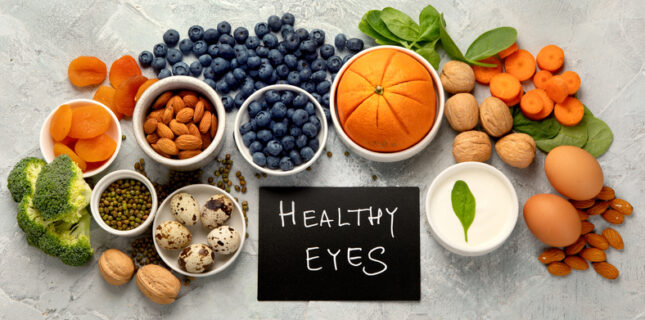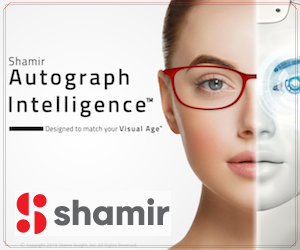
Communicating the Eye Health + Nutrition Connection
As an eyecare professional, you’re familiar with the role that diet and lifestyle play in maintaining eye health. Sharing this information with your patients can be just as crucial as expressing the importance of routine eye care since most patients may not realize how much their food choices impact their vision.
Tip: When discussing eye health and nutrition with patients, recommending a Mediterranean diet is a simple way to package the many sight-saving nutrients we can receive from food.
John Hopkins Medicine offers a list of nutrients beneficial to eye health and where to find them:
- Vitamin A supports night vision; sources include carrots, spinach, and eggs.
- Vitamin C may prevent cataracts; sources are citrus, kale, and peppers.
- Vitamin E protects against oxidative damage; find it in almonds and avocados.
- Carotenoids lutein and zeaxanthin also protect against oxidative damage; they can be found in some leafy green vegetables and in fruits like raspberries and peaches.
- Flavonoids may improve the function of retinal ganglion cells; find them in caffeinated tea, dark chocolate, berries, wine, and citrus.
- Selenium acts as a preventative antioxidant, protecting against conditions like age-related macular degeneration; sources are nuts, seafood, dairy, seeds, and eggs.
- Omega-3s reduce eye inflammation; sources include salmon, walnuts, and flaxseeds.
According to a study by The American Journal of Clinical Nutrition, eating beef, pork, or lamb as a main dish more than once a week have a 35% higher risk of developing age-related macular degeneration compared to those who eat them less than three times a month.
John Hopkins Medicine notes that adopting a Mediterranean diet is a simple way to incorporate these nutrients. This easy-to-follow recommendation can be helpful for patients who seem uninterested or overwhelmed by the nutritional information, and the addition of a few Mediterranean-inspired meals is an easy way to package the information.
Educational materials can reinforce your advice, helping patients feel empowered to make changes. Provide pamphlets, visual guides, or even email newsletters on eye-healthy foods, recipes, or tips for incorporating key nutrients into their diet.
When following up, ask about dietary changes they’ve tried since the last visit, and offer new suggestions or resources. Over time, these reminders can help integrate eye health into their everyday lifestyle.
Encouraging patients to make small, manageable changes today can make a big difference in their eye health tomorrow. By emphasizing practical tips and approachable advice, you can equip them with the knowledge to take proactive steps toward protecting their vision through nutrition.
How do you start the conversation about nutrition and eye health with your patients? Tell us about it and share in the conversation on Facebook here.
- The American Journal of Clinical Nutrition – https://ajcn.nutrition.org/article/S0002-9165(23)06478-X/pdf
Comments are closed.








